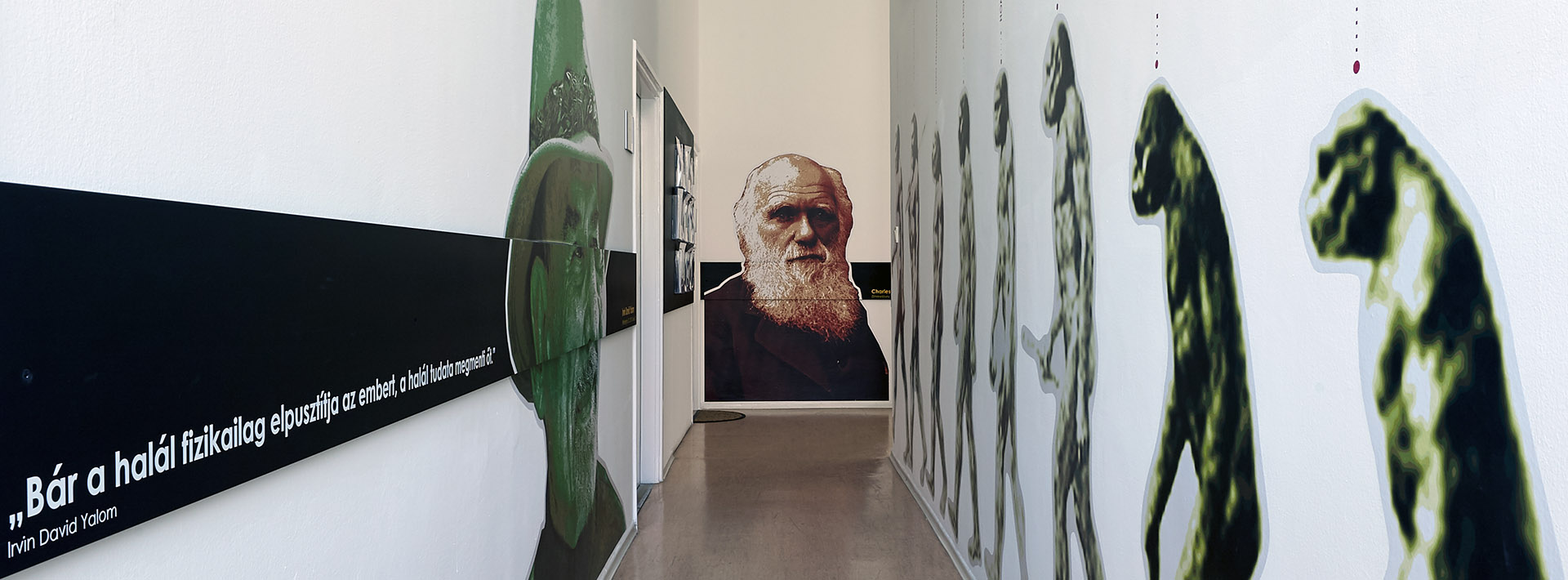Daten
Offizielle Daten in der Fachveröffentlichung für das folgende akademische Jahr: 2023-2024
Lehrbeauftragte/r
-
Dr. Zsuzsanna FÜZESI
professor,
Department of Behavioural Sciences -
Semesterwochenstunden
Vorlesungen: 0
Praktika: 0
Seminare: 14
Insgesamt: 14
Fachangaben
- Kode des Kurses: OTL-COMM-T
- 1 kredit
- Biotechnology BSc
- Soft Skills for Biotechnology modul
- spring
keine
Zahl der Kursteilnehmer für den Kurs:
min. 5 – max. 99
Thematik
The course will introduce students to the theoretical and practical aspects of basic communication skills. In addition to the theoretical background of communication (types and levels of communication; communication styles and principles; the role of suggestive communication; intercultural communication), the seminars will provide students with communication exercises to develop their advocacy, conflict management and empathy skills, which are essential for effective work and cooperation. By developing communication competences, students will increase their sense of ownership and develop their ability to use professional and effective oral, written and network communication methods and tools.
Vorlesungen
Praktika
Seminare
- 1. General communication skills. (Purposes, principles, types, levels and laws of communication. The importance of information in interpersonal relationships. The role of verbal and non-verbal communication. Communication noise. What makes our communication effective?)
- 2. General communication skills. (Purposes, principles, types, levels and laws of communication. The importance of information in interpersonal relationships. The role of verbal and non-verbal communication. Communication noise. What makes our communication effective?)
- 3. Communication styles (Introduction to communication styles: aggressive, passive, manipulative and assertive communication, their backgrounds, behavioural characteristics and effects. Interactive presentation of the assertiveness model; the results of assertive communication. Requirements for effective written and oral communication. (Awareness of own communication style - MBTI test and situational exercise)
- 4. Communication styles (Introduction to communication styles: aggressive, passive, manipulative and assertive communication, their backgrounds, behavioural characteristics and effects. Interactive presentation of the assertiveness model; the results of assertive communication. Requirements for effective written and oral communication. (Awareness of own communication style - MBTI test and situational exercise)
- 5. Nonviolent communication (Communication between the giraffe and the jackal based on Marshall Rosenberg’s work . The role of objective assessment of the situation, i.e. the role of active attention in understanding individuals in order to avoid misunderstandings. Distinguishing between feelings and thoughts. The ability to say no, to criticise and to make requests assertively. Situational exercises.)
- 6. Nonviolent communication (Communication between the giraffe and the jackal based on Marshall Rosenberg’s work . The role of objective assessment of the situation, i.e. the role of active attention in understanding individuals in order to avoid misunderstandings. Distinguishing between feelings and thoughts. The ability to say no, to criticise and to make requests assertively. Situational exercises.)
- 7. Situational exercises.
- 8. Situational exercises.
- 9. Effective communication in dealing with conflicts (Motivation, creating win-win situations, argumentation, reconciling different points of view, conducting conflict discussion, questioning techniques. Information distortion and its consequences. The role of empathy in communication.)
- 10. Effective communication in dealing with conflicts (Motivation, creating win-win situations, argumentation, reconciling different points of view, conducting conflict discussion, questioning techniques. Information distortion and its consequences. The role of empathy in communication.)
- 11. The suggestive role of communication (broken record technique, yes-set, follow-lead, positive/negative questioning, the role of control, echo technique. Intercultural communication specificities.
- 12. The suggestive role of communication (broken record technique, yes-set, follow-lead, positive/negative questioning, the role of control, echo technique. Intercultural communication specificities.
- 13. Scientific communication (Communication during research, with subjects)
- 14. Scientific communication (Communication during research (with participants and collegues)
Materialien zum Aneignen des Lehrstoffes
Obligatorische Literatur
Notes from the seminars.
Vom Institut veröffentlichter Lehrstoff
Skript
Empfohlene Literatur
Wambui, Tabitha: Communication Skills, Students Coursebook, 2015
Huber-Kriegler, M., Lázár, I., & Strange, J.: Mirrors and windows: An intercultural communication textbook. Council of Europe, 2003
Guenther, L.: A textbook linking theory, research, and practice of science communication, 2020
Katz, N. H., Lawyer, J. W., Sweedler, M., Tokar, P., & Sossa, K. J.: Communication and conflict resolution skills. Kendall Hunt Publishing, 2020
DeVito, J. A.: The Interpersonal Communication Book. Instructor, 1, 18, 2019
Voraussetzung zum Absolvieren des Semesters
Maximum of 15 % absence allowed
Semesteranforderungen
None.
Möglichkeiten zur Nachholung der Fehlzeiten
None.
Prüfungsfragen
1. General communication skills.
2. Communication style
3. Nonviolent communication
4. Situational exercises
5. Effective communication in dealing with conflicts
6. The suggestive role of communication
7. Scientific communication
Prüfer
- Dr. Gács Boróka
Praktika, Seminarleiter/innen
- Dr. Gács Boróka
